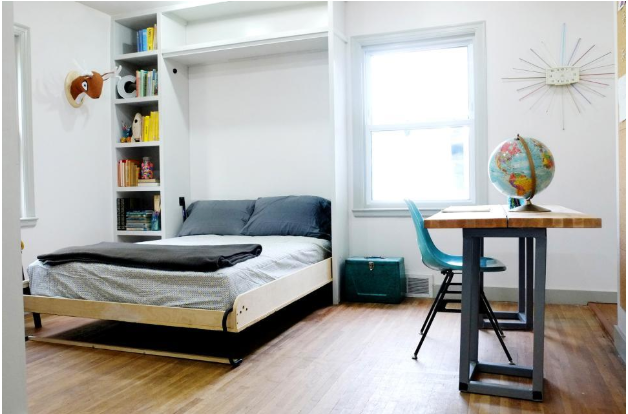There may come a time when you realize that you have outgrown your home. There could be a number of reasons for this.
Your kids might be getting older and need more space of their own which you simply don’t have. You might be starting a new work-from-home job and require a brand new study to work from. Or you might just fancy an extra room away from the hustle and bustle of real life.
Whatever the reasons, when you need to upsize then there are two options. The first is to move, a potentially costly and lengthy process that will in all probability be extremely stressful to boot. The second is to expand your current home by adding more space to the property.
If the second of those two options is your preferred choice, then read on – here are six steps to expanding your home.
Decide what it is you want to build as part of the expansion
The first step is to decide what it is that you want to build. It might be an extra bedroom, so your children no longer have to share, a new bathroom so that there is no longer a queuing system in place for the morning shower or a garage to keep your car safe at night.
The purpose of the expansion and how many rooms you are looking to create will help inform the rest of the process, so a clear idea and plan is required from the outset.
Get to know local building restrictions and rules
Before you get too excited about the project in hand, you need to become familiar with what you can and can’t do from a legal perspective. You’d be surprised at the number of archaic laws that exist in the building industry, such as any new home built in Wyoming that costs over $100,000 must spend at least one percent of the funds on artwork for the building.
While turning your broom cupboard into a new bathroom shouldn’t result in you having to buy an expensive Picasso just to get planning permission, it’s always good to be aware of what potential zoning restrictions or permits are required by getting in contact with your local City Hall to inquire.
Budget for the expansion
Expanding a home is the sort of infrastructure project in which the costs can often spiral. Make sure you aren’t taking on more than you can afford by thoroughly budgeting for the expansion before you commit to it. Set a dollar amount of what you are willing to spend and then have a look at prices to either do it yourself or hire a contractor.
Decide where you are going to expand
Once you’ve set a budget, you can work out the most cost-effective area in which to grow your home. You might find that converting a basement into a bedroom is a cheap and easy way to add another room or that one of the best roofing contractors in Charleston, SC you speak to reckons that expanding into the attic could give you two new rooms instead of one.
Bigger budgets might allow an extension out the back or a new wing to be built onto the side – although as already noted, major expansion projects like that will need to be compatible with any deed restrictions.
Do it yourself or hire a contractor?
For some expansions, you might be able to take on the work yourself. If it’s merely a case of making a basement habitable by decorating it, building furniture and installing proper flooring, then there is no reason why you can’t go it alone. Some people’s skills might even allow them to tackle an extension themselves, providing they’re confident in their ability to lay bricks and construct a roof.
For larger projects, you will have to get an expert in. Any jobs that involve structural changes to a building will need to be carried out by a professional, and anything involving electrical or plumbing installations should not be attempted by somebody unqualified to carry out such work either.
Get quotes
If you’ve decided to hire the professionals, then contact as many general or remodeling contractors in your area as you can. They should be happy to come and provide a no-obligation quote, and you can also discuss your budgeting and needs with them to discover if it’s realistic.
Before deciding on who to hire for the task, check out their references. You should also only employ someone who you feel you have a personal connection with. If it is a long job that will take several months to complete, the contractor is going to potentially be spending eight hours a day, five days a week in your home – it will be almost as if they are another member of your family, so you need to make sure you get on with them.







